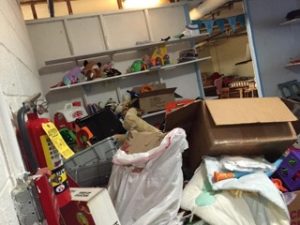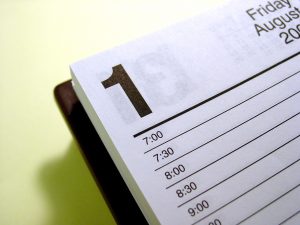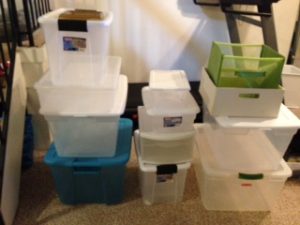 Some of us love change. With each new month we tend to change our clothing, eat different foods and decorate our homes. That’s a lot of work for some of us. How do you remember everything that needs to be done? I use my calendar. Each month reminds me of what needs to be done. Below is a monthly glance at my calendar.
Some of us love change. With each new month we tend to change our clothing, eat different foods and decorate our homes. That’s a lot of work for some of us. How do you remember everything that needs to be done? I use my calendar. Each month reminds me of what needs to be done. Below is a monthly glance at my calendar.
How do you remember?
An easy way to keep up with the changing seasons is to set an event in your calendar for each month and have it notify you. Or, maybe break up things into weekends, starting each Saturday morning with a “things to do list.” I pretty much have it memorized and enjoy the changes that the seasons bring.
Happy autumn to you!
Click on the title above to learn more about the featured author.
 What happens if you love to shop BUT hate to organize? Or you don’t have the time or energy to deal with what you buy?
What happens if you love to shop BUT hate to organize? Or you don’t have the time or energy to deal with what you buy?
All those “great deals” become clutter when you bring things into the home and either don’t have a place to put them right away or haven’t purged things to make room for them. What happens most of the time? The items stay hidden in bags that pile up. Then there’s a problem.
Too much stuff, with no place to put it, leads to clutter and chaos which do not allow the stress-free, organized home you desire.
Before you buy something, ask yourself these questions:
Remember—if a deal seems too good to pass up, but you don’t need the item, you need to put it somewhere if you bring it home. The floor does not count so no bags should be piled up on the floor.
Before buying more things, ask yourself the above questions. You’ll learn over time that the best way to stop clutter is before it enters your home.
Click on the title above to learn more about the featured author.
 Do you struggle trying to accomplish everything you want to get done in a week? Are you always asking yourself “where does the time go?” Are you always running late for appointments? Instead of trying to keep it all organized in your head, start a time management system for yourself by using a calendar (digital or paper, whatever your preference), a Day-Timer, or even an excel spreadsheet will work.
Do you struggle trying to accomplish everything you want to get done in a week? Are you always asking yourself “where does the time go?” Are you always running late for appointments? Instead of trying to keep it all organized in your head, start a time management system for yourself by using a calendar (digital or paper, whatever your preference), a Day-Timer, or even an excel spreadsheet will work.
Remember school schedules? The week is scheduled by the day, classes with start and end times are filled in first and the remaining time is what you have left for the week. Start with your non-flexible commitments, such as; work, and then plan the other activities or tasks by the days and times available in the space you have left. Block out the amount of time each commitment, task, or activity will take and include travel time if necessary. This will visually put your time available to accomplish your tasks for the week “at a glance” and into perspective. This is imperative for getting a handle on your time management schedule. If there are overlapping commitments and a shortage of time available to get everything accomplished, you know it’s time to reorganize your week.
Keep in mind, you do need to sleep, so only schedule your time during your realistic waking hours. Each day follow your day’s schedule of events to know where you have to be and when. Then when emergencies crop up and they will, you will have a much better handle on where to reschedule the lessor priorities.
Don’t overbook yourself. Be realistic, allow for travel time and most importantly, don’t forget to allow for “down-time”!
Click on the title above to learn more about the featured author.
 The first day of Fall is September 22. Work and school are back in full swing. Managing your to-dos effectively is essential to maximizing your productivity at home and work.
The first day of Fall is September 22. Work and school are back in full swing. Managing your to-dos effectively is essential to maximizing your productivity at home and work.
A while ago I gave a presentation called “Stop Mumbling, Oops, I Forgot: How to Effectively Manage Your To-Dos.” With good intentions, people say they’ll do something but then forget because it wasn’t noted somewhere. People waiting for the promised ‘something’ to be done are disappointed. At work, this is a particularly bad practice. A good practice is to make notes on your to-do list or calendar so tasks are not forgotten.
Even with the best systems, life sometimes gets in the way. As John Lennon said, “Life is what happens to you while you’re busy making other plans.”
Case in point: I received an email from an attendee the next day. “My kids need completely different school supplies than what we bought, my husband suddenly needs to take his car into the shop, mom’s aide left early without doing the grocery shopping, and I have a report deadline at work tomorrow. How do I know what to do first?” Let’s call her Amy and her husband Michael.
I made these assumptions: The report will take Amy’s available time to complete, and Amy and Michael each need a car to get to work.
Following was my response.
First, Amy should complete the report and meet the deadline. Her job provides needed income and benefits, so she shouldn’t potentially put it at risk.
Second is Michael’s car. There are a few options. Have Michael find out if the auto shop provides a loaner car, ask someone to drive him from the shop to work (if convenient), call Uber/Lyft or wait for the car to be repaired.
Third comes food. Cereal, eggs and PB&J (or whatever is on hand) can fill bellies for a day. Other options include ordering food from a market with home delivery, ordering takeout with delivery, and asking the aide to get groceries the next time he/she’s on duty.
School supplies are fourth. Amy can order the supplies online with next-day delivery or pickup after work.
______________________________________________________________
General takeaway tips:
• Have the school provide in advance a list of needed supplies and buy them then.
• Schedule non-cancelable appointments with yourself to work on and complete reports and other important work well before the deadline to avoid a last-minute crises.
• Develop a Plan B to get to work in case of future car trouble or other emergency.
• Join AAA or another roadside-assistance plan.
• Keep the fridge and pantry stocked with essentials such as cereal, milk, bread, eggs, pasta, tuna, soup and frozen meals.
Having a contingency plan for emergency situations helps to make life less stressful. Who wouldn’t want a little less stress?
When life overwhelms you, stop and take a deep breath. Figure out what needs to be done and by when. Prioritize by most-to-least important. So, first do what needs immediate attention. If you find crisis situations happen too often, click HERE to contact a member of the Greater Philadelphia Chapter of the National Association of Professional Organizers for help.
Click on the title above to learn more about the featured author.
 Whenever I do a workshop, I am invariably asked if you have to be born with an organizing gene. Although my answer to this question is no, I do think that all of us have gifts in different areas of life, and hence, we can all learn from each other.
Whenever I do a workshop, I am invariably asked if you have to be born with an organizing gene. Although my answer to this question is no, I do think that all of us have gifts in different areas of life, and hence, we can all learn from each other.
One of the tips that I always give my clients, workshop attendees, or anyone else who has a question about organizing is NOT to buy any containers until you see what you need. Until you know what you are going to keep after sorting and purging (this includes donating, recycling, shredding, and discarding), how would you know what size container to buy, or, if you even need one? You always want to make sure it is the right size, color, and that it will fit the space.
More often than not, there will be containers left after you’ve gone through the sorting and purging steps. You would be surprised at how many you thought you needed and bought, so use those containers first. No doubt they will work if you find you need them for other items you kept to store.
Do yourself and your wallet a favor and don’t spend the time buying something that you may not need. If you do buy something and don’t use it, are you going to remember where you put the receipt? If you find the receipt, you are going to have to spend time returning the item to the store. Wouldn’t you rather spend your time and money on what you really want?
Rather than buying the product first and then trying to see if it works for what you need, figure out your need first and then decide on the solution. When was the last time an inanimate object like a basket or plastic storage container organized you?
Click on the title above to learn more about the featured author.
 When people contact me asking for organizing assistance, they sometimes indicate they have tried to get organized, but didn’t get the results they wanted. In other words, short term fixes didn’t lead to long-term results. Here are three recommendations to ensure your organizing efforts are long-term fixes:
When people contact me asking for organizing assistance, they sometimes indicate they have tried to get organized, but didn’t get the results they wanted. In other words, short term fixes didn’t lead to long-term results. Here are three recommendations to ensure your organizing efforts are long-term fixes:
Let me expand on these three recommendations:
Organizing is an ongoing job and maintenance is the key. Here are my Lucky 13 Tips on how to keep your spaces the way you want them to look:
Clutter Quote: “Order is never observed; it is disorder that attracts attention because it is awkward and intrusive.” Eliphas Levi, French occult author and magician
Click on the title above to learn more about the featured author.